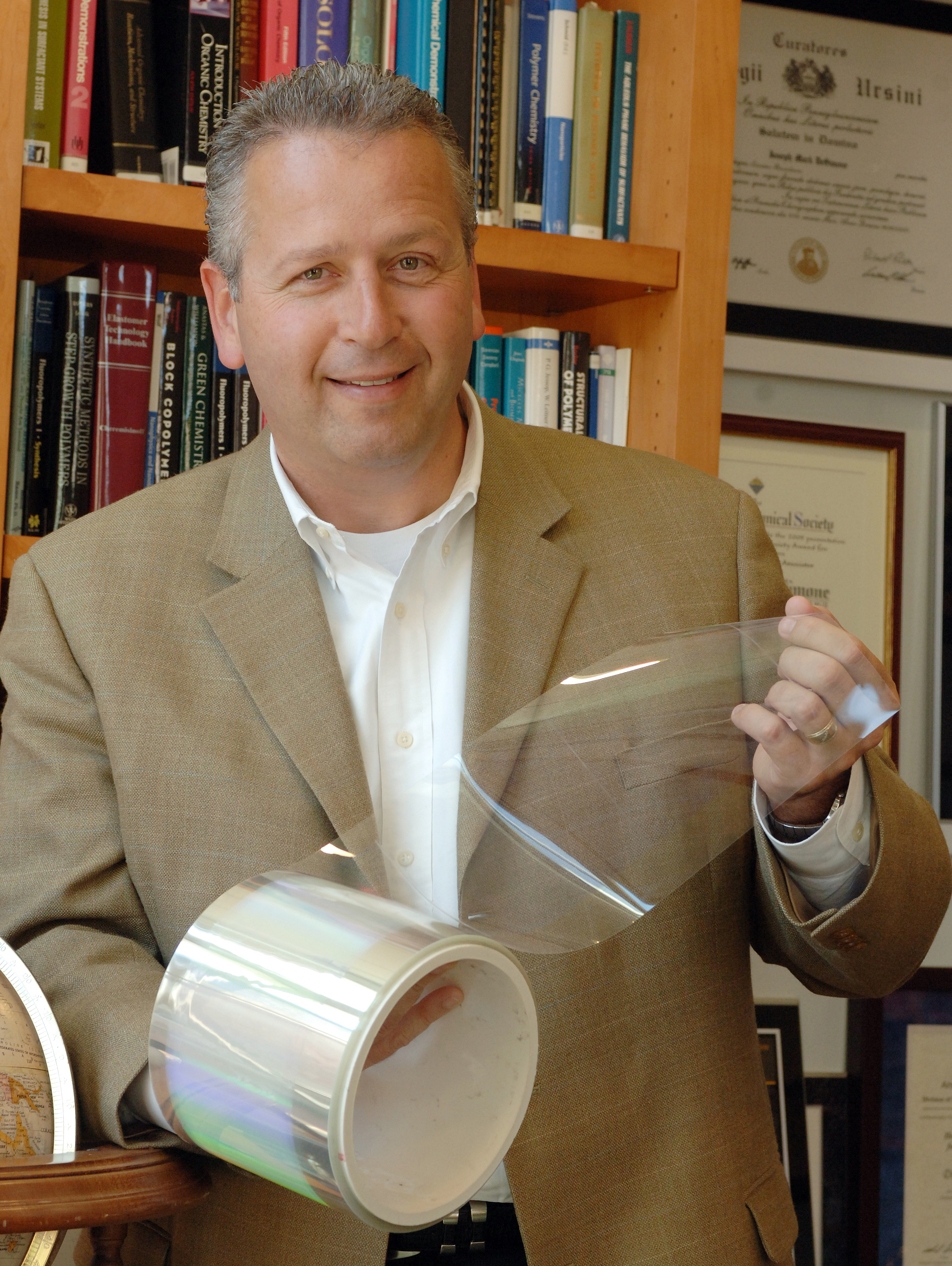Dr. Joseph DeSimone, Chancellor’s Eminent Professor of Chemistry at the University of North Carolina at Chapel Hill and UNC Lineberger member, has been elected to the Institute of Medicine, one of the highest honors in the fields of health and medicine a U. S. scientist can receive.

DeSimone’s election to Institute of Medicine represents the third time he has been named a member of a U. S. National Academy. He was elected to the National Academy of Engineering in 2005 and the National Academy of Sciences in 2012. Fewer than 20 people in history have achieved election to all three U. S. National Academies.
DeSimone is the first professor in the state of North Carolina to be named to all three U. S. National Academies.
“Dr. DeSimone is a renaissance scientist,” said Chancellor Carol L. Folt. “He was the first to successfully adapt manufacturing techniques from the computer industry to make advances in medicine, including next-generation approaches to cancer treatment and diagnosis. It’s a beautiful example of how transcending disciplines can revolutionize science and open up entirely new fields of study. We are very proud of what Dr. DeSimone and his students have accomplished. He is a gifted and talented teacher and amazing University citizen.”
“It is humbling to join such an elite group,” DeSimone said. “This is a tribute to my students at UNC-Chapel Hill and NC State whose research at the intersection of diverse fields enables us, as a team, to create significant impact in and beyond medicine.”
DeSimone, who is also the William R. Kenan, Jr. Distinguished Professor of Chemical Engineering at NC State and of Chemistry at UNC-Chapel Hill, is known for his ability to apply insights in materials science to create advances in medicine, as well as other fields. He has more than 300 publications and holds more than 180 patents, which have also led him to found multiple companies based on his work.
During his 24-year career at UNC-Chapel Hill and NC State, DeSimone has made multiple important contributions to the advancement of medicine. In the early 2000s, he developed breakthrough materials for a new, drug-eluting, bioabsorbable cardiac stent to treat heart failure which dissolves in the body once a previously clogged artery has healed and can function on its own. The stent is now being commercialized by Abbott Vascular and is available in over 60 countries.
In 2005, DeSimone and his students invented a new technology to create nano- and micro-particles called PRINT (Particle Replication In Non-wetting Templates). PRINT enables scientists to manufacture large batches of uniform particles with tailored shapes, sizes, flexibility and chemistries using tools reminiscent of the processes used to make transistors in the microelectronics industry. PRINT particles are currently being explored by DeSimone and his team for the development of next-generation vaccines including for dengue fever, influenza and certain forms of cancer.
Since PRINT particles can be loaded with active pharmaceutical agents, including chemotherapy drugs, DeSimone’s lab is also using PRINT to pursue novel cancer treatments, as well as inhalable therapeutics for multiple conditions. DeSimone founded Liquidia Technologies, Inc. in 2005 based on PRINT, and in 2012, the company announced a large, multi-year partnership with GlaxoSmithKline focused on using PRINT to develop vaccine and inhaled products for the prevention and treatment of serious health conditions.
Also in 2005, DeSimone’s team’s work led to the creation of the Carolina Center for Cancer Nanotechnology Excellence, a ten-year, almost $40 million initiative based at UNC’s Lineberger Comprehensive Cancer Center, funded by the National Cancer Institute.
